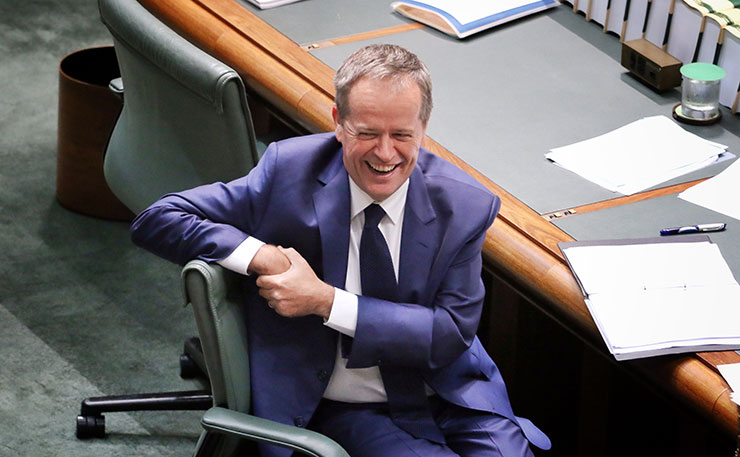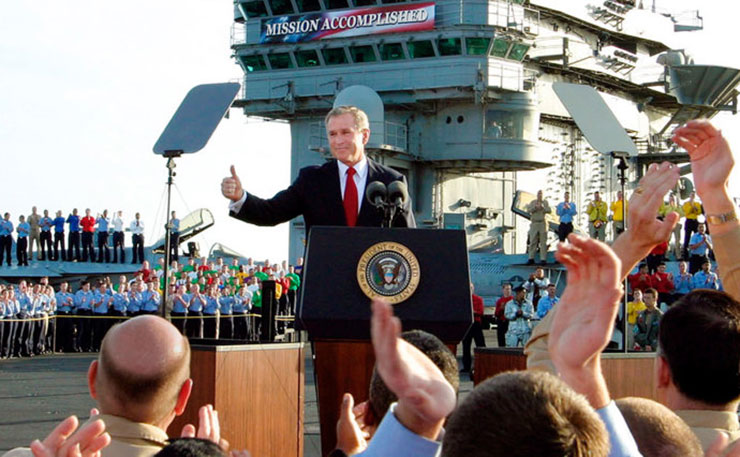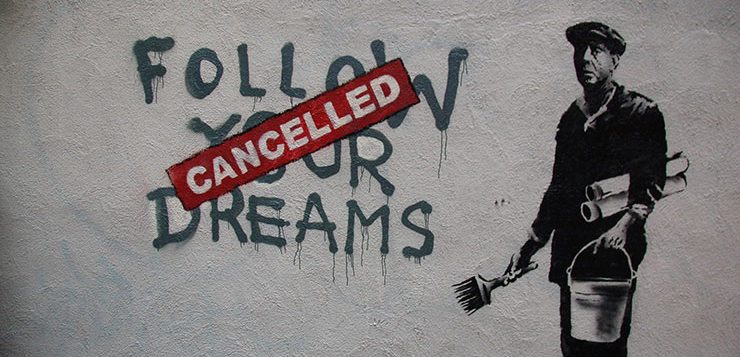The huge enthusiasm for tomorrow’s school strike for climate could easily turn into its opposite. Let’s make sure we don’t repeat the disappointment of the 2003 Iraq war protests, writes Nick Riemer.
Among people who care about the planet, the massive turnouts expected around the country – and the world – for tomorrow’s climate demonstrations are fueling justified excitement.
It’s not just that hundreds of thousands of students will go on strike from school and demand real action on global warming. More than the sheer numbers, what really matters is that, even before it’s happened, the strike lets us glimpse the potential of a different kind of politics — one based on concerted, defiant mass action, delivering a sharp rebuke to the adult political class whose truancy on climate has been so unshakeable.
The fact that minors, who aren’t usually even considered politically mature, are leading the way speaks volumes about where the real political initiative in society currently lies.
The excitement is more than understandable. But the very intensity of the enthusiasm among Friday’s organisers and prospective participants creates dangers which we mustn’t ignore. Politics is no exception to the general rule: things can easily turn into their opposite.
So we need to ask what the flip-side of that enthusiasm will be when, six months or a year on, politicians will still have failed to take the necessary action.
Labor leader Michael Daley’s rhetorical support for the strike is welcome. But his party will not deliver decisive action on global warming of its own accord: Shorten has even publicly opposed the strike.

The left is, in short, looking down the barrel of another 2003, the year when some of the largest demonstrations we’ve ever seen failed to stop the catastrophe of the invasion of Iraq.
The solidarity and optimism of those global protests left a deep impression on many marchers. But as any campaigner knows, the political hope kindled by that mass action often turned into disillusionment and alienation from politics when George W. Bush went ahead and sent the troops in anyway.
It wasn’t until much later that it became possible to argue that, despite the failure of their most immediate demand, the marches created a significant political obstacle to subsequent Western interventions. In 2003 itself, what everyone saw was that when millions of people called for peace, they were simply ignored. How many times were activists told in the following years that ‘demonstrations just don’t work anymore’?
Mass action is the planet’s only hope: we just can’t afford a similar outcome in 2019. The fact that tomorrow’s march is the second in a series and set to be larger than the one in November is already a promising sign.
The success of 2017’s huge street mobilisations for equal marriage have probably also gone some way to restoring confidence in grassroots, democratic politics. But a let-down of 2003 proportions in the wake of Friday is still very possible, and risks seriously damaging the climate justice movement.
That means it’s essential that marchers see the real potential of their action. The natural way to think of protests is simply as expressions of a political demand: people speak, and the ball is then in the court of politicians and other decision-makers, who have to decide whether to meet the demand or not. A demonstration is experienced as an act of expression: we say what we want, and we cross our fingers that the politicians who are supposed to represent us will feel enough pressure to actually do so.

But the very fact that Friday’s demonstrating is even happening — in defiance of the authority of school and the government – already represents a massive disruption to political normality. Minors have emerged as a political subject, with a right that can’t be ignored to protect their future; their action is a big news story even before it’s happened.
Numerous political organisations, including many unions and some individual political leaders are supporting it. Extraordinarily, even the politically conservative management of the University of Sydney, where I work, has given its students and staff members permission to attend the strike without penalty. These are all achievements in their own right, and they give a sense of the power that concerted mass action has to reset political reality.
If climate disaster is to be averted, the determination, solidarity and rule-breaking of Friday’s actions will need to be scaled up significantly. Crucially, action will need to break through the realm of political representation into the realm of mass direct action.
Powerful vested interests are blocking a just transition to a green economy. They have the major parties in their pockets. Only disruptive collective action – blockades of energy companies, sit-ins of parliament, disruption of extractive industries, strikes for climate across the workforce, not just in education – are the kinds of initiative we will need.
The distance between a street demonstration like Friday’s and that kind of radicalism is considerable. But Friday is an opportunity for participants to get an inkling of the transformative potential of mass action, its capacity to bring change in itself, bypassing the mediation of official politics.
With the ALP probably back in power after May, even the NGOs who have contributed greatly to Friday themselves may demobilise. In that new political situation, we will need to see a less defeatist, more determined response among ordinary participants than we did in 2003, when the conclusion too often was ‘protest doesn’t work, politicians just do what they want, so why bother anymore?’.
On the left, let’s make sure that doesn’t happen again. A single demonstration never changed anything. Friday needs not to be the end, but the start of an escalating campaign which makes the most of people’s collective power to change things by ourselves.
The fact that the next generation is turning to grassroots politics so early is a hope for the future that we mustn’t turn sour.
Donate To New Matilda
New Matilda is a small, independent media outlet. We survive through reader contributions, and never losing a lawsuit. If you got something from this article, giving something back helps us to continue speaking truth to power. Every little bit counts.




